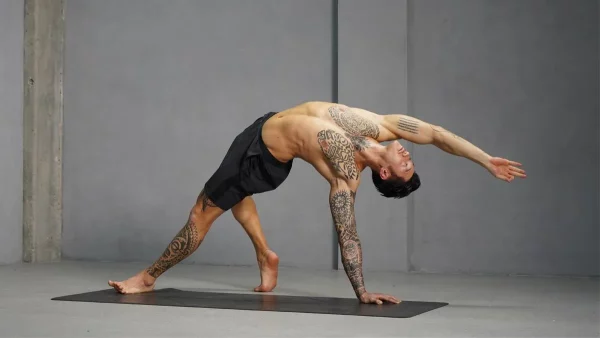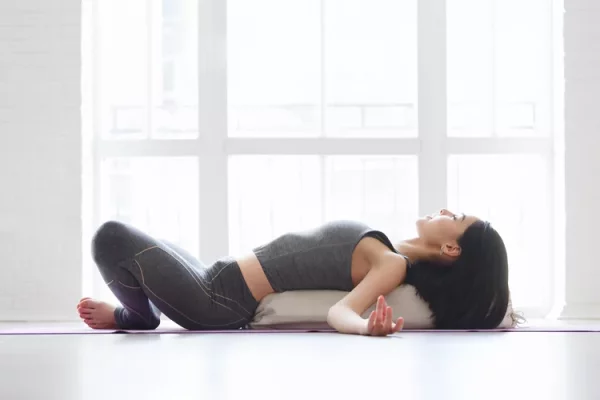Yoga is not just a form of exercise but a journey that connects the body, mind, and spirit. Rooted in thousands of years of history, yoga offers comprehensive benefits, from improving physical health to balancing emotions and reducing stress. With its high adaptability, yoga suits all ages, fitness levels, and is particularly appealing to adults seeking a healthier lifestyle.
The uniqueness of yoga lies in its ability to combine physical movements with breathing techniques and meditation. According to the National Center for Complementary and Integrative Health (2020), yoga enhances flexibility, strengthens muscles, improves endurance, and reduces the risk of cardiovascular diseases and chronic stress. Simple practices like Hatha yoga can help practitioners notice significant improvements in flexibility within just a few weeks of consistent training.

Yoga is not only a physical activity but also provides profound mental benefits. The American Psychological Association (2017) reported that regular yoga practice reduces 40% of anxiety and stress levels in adults. This is attributed to yoga’s ability to stimulate endorphin production and enhance parasympathetic nervous system activity, resulting in lower heart rates and stabilized emotions.
Another outstanding feature of yoga is its inclusiveness, making it suitable for everyone, from children and pregnant women to seniors. For individuals with joint problems or muscle soreness, yoga serves as a gentle yet effective form of exercise. According to the World Health Organization (WHO, 2018), yoga alleviates arthritis symptoms and improves mobility without placing stress on joints.
“Yoga is not just a workout but a therapy for mental balance, helping individuals cope with stress and find peace in life.” – WHO, 2018
Breathing exercises in yoga, such as Pranayama, play a crucial role in enhancing lung health and respiratory control. According to the American Heart Association (2021), this breathing technique increases lung capacity, reduces the risk of respiratory diseases, and improves blood circulation.
Yoga also aids in addressing sleep issues. A study by Harvard Medical School (2015) revealed that yoga improves sleep quality in 55% of individuals with chronic insomnia by calming the mind and relaxing the body. Restorative yoga, in particular, is among the most popular choices for reducing stress and promoting deep sleep.

Beyond health benefits, yoga encourages practitioners to develop patience, focus, and emotional self-regulation. These values not only have a positive impact on personal life but also enhance work performance and social relationships. With diverse styles such as Ashtanga, Iyengar, or Yin yoga, individuals can easily find a form that suits their goals and physical conditions.
Yoga is more than just an exercise; it is a way of life. Take the time to experience and embrace the difference yoga brings, from a healthier body to a peaceful mind. With persistence, you will realize that yoga not only improves health but also transforms the way you live, love yourself, and connect with the world around you.


HPX24h > Fitness > Yoga: The Key to Physical and Mental Balance
Top Reads from This Category
Fitness
Effective Training Tips to Enhance Muscular Endurance
Fitness
Muscles: The Golden Key to Effective Health and Performance
Fitness
Walking or Running: Which Is Better for Health and Weight Loss?
Fitness
The Secret to Holistic Health: Aerobics and Its Role in Preventing Cardiovascular Disease
Fitness
Why Do You Get Headaches After Exercise? Causes, Remedies, and Effective Prevention
Fitness
More Flexible – The Secret to Longevity?
Fitness
Secrets to Building Muscle with Exercise: From Technique to Habit Maintenance
Discover New Topics
Science
New Hope from Cyborg Spinal Implant Technology for Paralyzed Patients
Healthy Eating
Does Bone Broth Really Help Relieve Joint Pain and Improve Skin?
Health
The Best Days to Get Pregnant: How to Accurately Time Your Ovulation?
Healthy Eating
Gallbladder Protection Through Diet: Expert Guide and Practical Tips
Fitness
How Long Does It Take to Build Muscle?
Animals
Ravens Use Gestures to Find Mates: A New Discovery About Their Intelligence
Space
The Journey to Unveiling the Mysteries of Ancient Martian Oceans
Healthy Eating
The Reasons You Should Eat These Fruits During Pregnancy to Reduce Fatigue and Anemia
Space
Habitable Exoplanets: Exploring Distant Worlds
Animals
Secrets to Surviving Antarctic Freezing Cold Through RNA Editing
Parenting Tips
How to Talk to Your Child About Divorce: Helpful Tips for Parents
Space
Scientists Discover Dark Galaxy Located 10 Billion Light-Years from Earth
Parenting Tips
Talking To Children About Sexuality: How To Make It Easier?